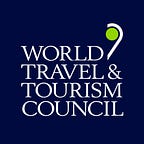What happens when an island is dependent on Tourism?
That Travel & Tourism is a vital part of the world economy is — hopefully — quite clear. But there are places in the world that are especially reliant on the sector. Specifically, in many small island states, Travel & Tourism contributes to at least a third or more of the economy and supports an even greater percentage of jobs in the country. While this reflects Travel & Tourism’s role as an economic force and key employer, it also shows that many places depend on the continued strength of the sector. This means that issues of sustainability, human resource development, and policies for tourism development are critical factors in these countries.
Of the 30 countries where Travel & Tourism represents the largest proportion of total GDP, all but five are islands. Iceland is by far the biggest of these, at least in geographic size. The rest are generally quite small island states spread out across several parts of the world.
At the very top of the list is the Caribbean island of Aruba, where Travel & Tourism’s overall economic contribution represents more than 88% of total GDP and the sector supports over nine out of ten jobs. In other words, less than 10% of jobs in Aruba are not supported by the sector in one way or another. And the top 15, in terms of Travel & Tourism’s importance to GDP, mostly includes other Caribbean countries, along with somewhat comparable destinations elsewhere — Maldives, Seychelles, Vanuatu, and Cape Verde.
A couple of exceptions prove the rule. The first is Macau, which, though an island, gets most of its Travel & Tourism contribution from gambling related activities — a different kind of tourism from the sun & beach holidays that are the main draw for many of the other islands. The other is Belize, which, though the only non-island country within these top 15, shares some of the islands’ characteristics of attractive tourist destinations, small size, limited other industry, as well as prioritisation of tourism.
Certainly, it is not too surprising that Travel & Tourism plays an especially important role in small island states, which frequently have the common characteristics of beautiful ocean settings loved by tourists alongside limited other natural resources or industrial development. This also means, however, that these countries are quite highly dependent on the sector. If tourists were to stay away in significant numbers, for whatever reason, their economy would rapidly collapse and a significant proportion of the population lose their jobs. With little other economic opportunities available as alternatives, it is vital that these islands ensure that tourists want to, and can, keep coming to stay and spend their money.
Visa policies are one element of keeping a destination competitive, and island states have often been leaders in opening their borders to tourists, and continue to make it easier for tourists to visit. On 28 May this year, for example, seven of them (St Lucia, the Commonwealth of Dominica, Grenada, St Vincent and the Grenadines, the Republic of Vanuatu, the independent State of Samoa, and the Republic of Trinidad and Tobago) signed a mutual visa waiver agreement with the EU. This allows EU citizens to travel to these countries without a visa for up to three months at a time, and will certainly support tourism to the region. Europe is already the Caribbean’s second most important source market, behind only North America, and easier visas are a clear sign that the destinations are eager to welcome more visitors from these countries.
In the long-term, keeping these destinations sustainable, from both the environmental and human perspectives, will be just as important as attracting more tourists. Destinations need to take measures not only to welcome visitors, but to build the infrastructure and maintain the natural environments that will keep them coming to provide incomes and jobs. The tremendous contribution the sector makes to GDP and employment in these countries should be a strong enough argument to encourage both the public and private sector in these countries to take the necessary steps. This will be important for tourists who want to enjoy some of the world’s quintessential tourist destinations, but even more so for these islands themselves.
